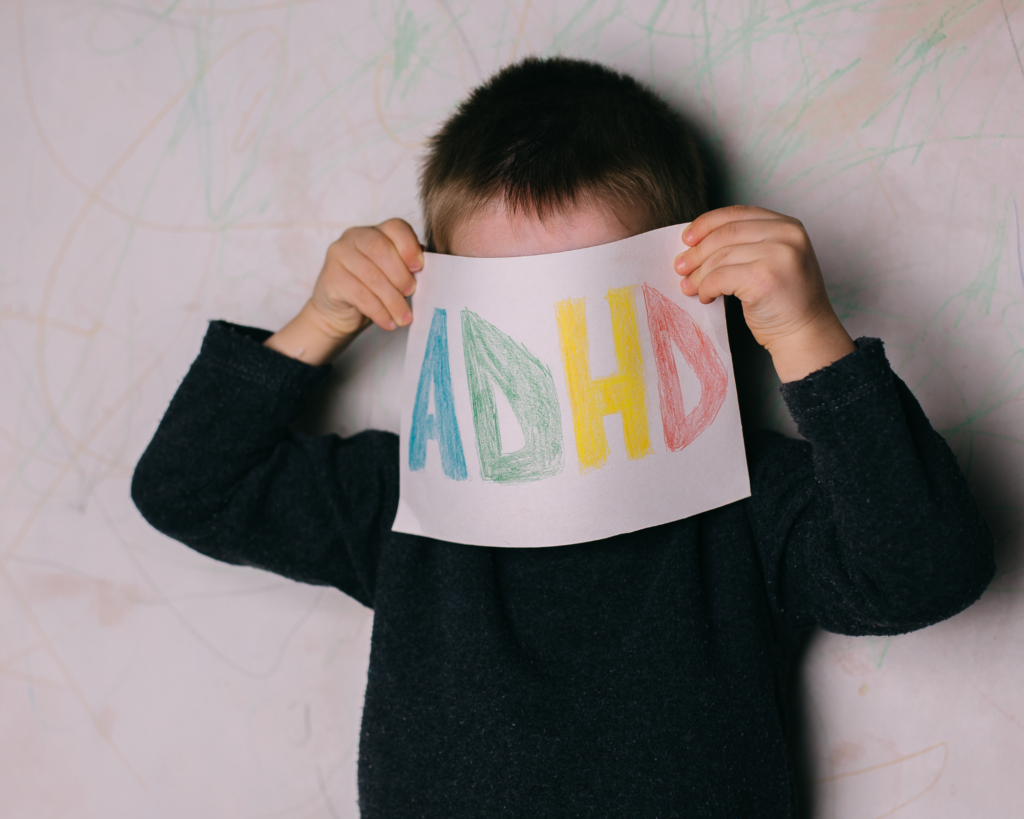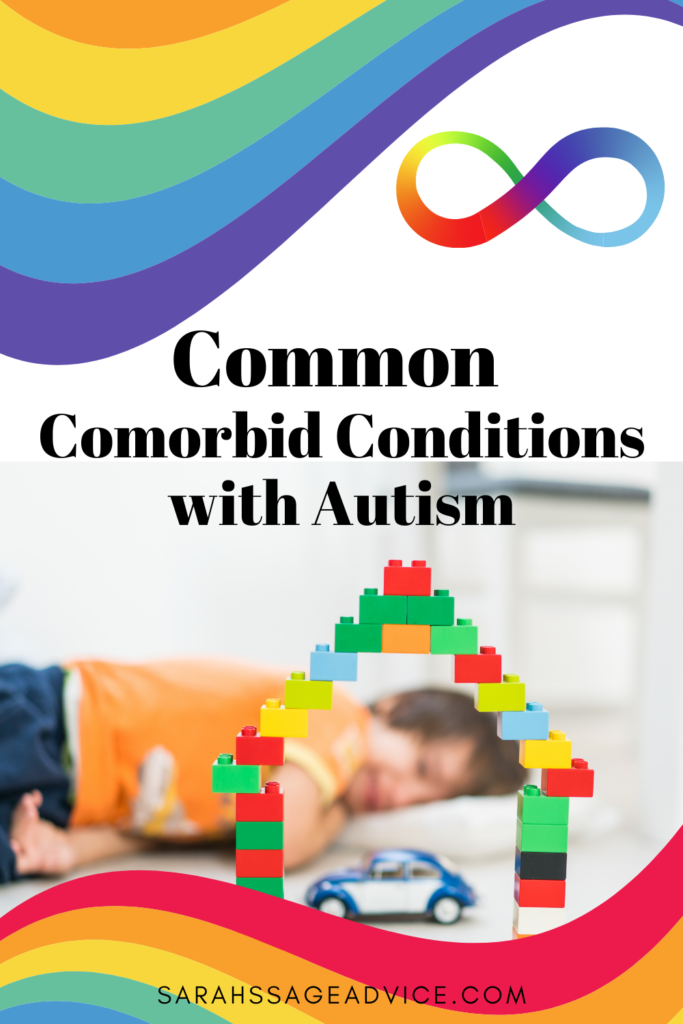Autism has very specific traits. Many of the misconceptions around Autism have to do a lot with misunderstanding about what are Autistic traits and what are traits of comorbid conditions. That are many different conditions that are often comorbid (simultaneously present).
Misunderstandings like the one I heard recently where a man was explaining that someone must not be autistic because they’re not intellectually delayed. Yes, intellectual delay and disability is often comorbid with autism, but not all autistic kids and adults are intellectually disabled in any way.
Nearly three-quarters of autistic children have some other condition. It’s important to identify, diagnose and treat these conditions separately. So it is important to understand the separate traits.
Some of the common co-morbid conditions with Autism include:
 Anxiety:
Anxiety:
- About 40-60% of autistic children have anxiety.
- Social anxiety is one of the most common anxiety disorders.
Attention Deficit Hyperactivity Disorder (ADHD):
- An estimated 30-80% of autistic children meet the criteria for ADHD.
- Conversely 20-50% of ADHD children meet the criteria for Autism.
 Epilepsy/Seizures:
Epilepsy/Seizures:
- Epilepsy affects about 25-40% of autistic individuals compared to 2-3% of the general population.
- Intellectual disability, underlying neurologic disorder, family history, and severe cognitive delay increase risk of epilepsy in autistic individuals.
Sleep disorders/disturbances:
- Sleep problems are twice as common among autistic children then typical peers.
- Autistic individuals tend to have insomnia
- Sleep is often less restorative
Gastrointestinal disorders:
- Depending on the study, 85% of autistic individuals have some sort of gastrointestinal disorders.
Depression:
- 10-72% of autistic individuals suffer from depression.
- Many go undiagnosed.
- A 2015 study found that only half of autistic individuals who take their own lives had been diagnosed with depression.
 Bipolar Disorder:
Bipolar Disorder:
- About 7% of autistic individauls are also bipolar. This is nearly three times the percentage of people in the general population.
- 30% of youth diagnosed with bipolar I disorder are also diagnosable with Autism.
Intellectual Disability:
- About 1% of the general population is thought to have intellectual disability, about 10% of autistic individuals.
Understanding traits for autism will help you identify in yourself, or your child, any comorbid conditions. Traits that do not fit the autism diagnosis may be signs for further evaluation for something else going on.
Sarah



